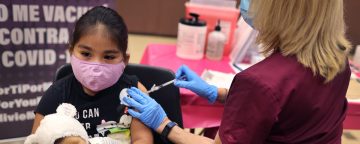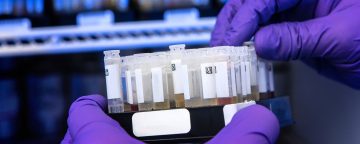After Dr. Mehmet Oz endorsed the MMR vaccine on “The Dr. Oz Show,” significantly more people in a segment of his audience regarded the MMR and flu vaccine as low-risk.


After Dr. Mehmet Oz endorsed the MMR vaccine on “The Dr. Oz Show,” significantly more people in a segment of his audience regarded the MMR and flu vaccine as low-risk.

New survey shows 93% of U.S. adults who are vaccinated and boosted against Covid-19 say they would be likely to recommend vaccinating children 5-11.

Americans’ confidence in the CDC and in Dr. Anthony Fauci declined in January with drops both among groups of Democrats/Democratic-leaning independents and Republicans/Republican-leaning independents, according to January survey data.

Millions of Americans continue to believe misinformation about vaccination and Covid-19, and these beliefs are associated with hesitancy to get themselves and their children vaccinated – or, if they are vaccinated, to get a booster.

"Creating Conspiracy Beliefs: How Our Thoughts Are Shaped" (Cambridge University Press), by researchers at the University of Pennsylvania and Western Illinois University, investigates influences on conspiracy beliefs.

Throughout the Covid-19 pandemic, conspiracy theorists have exploited the conditional nature of science and questioned the trustworthiness and motives of federal agencies and officials to depict scientists and health authorities as malign actors.

The Annenberg Public Policy Center and Penn’s Center for Public Health Initiatives have partnered on a guide to key facts and answers to important questions about Covid-19 and vaccination.

Rather than causing a backlash, vaccination requirements will succeed at getting more people inoculated, according to research from PIK Professor Dolores Albarracín and Penn colleagues.